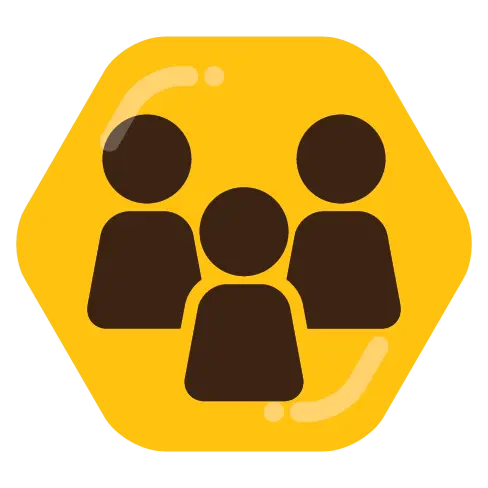- cross-posted to:
- pi_sourd@jlai.lu
- hackernews@lemmy.bestiver.se
- cross-posted to:
- pi_sourd@jlai.lu
- hackernews@lemmy.bestiver.se
While hearing aids are relatively speaking uncontroversial, the internal portion of a cochlear implant requires surgery, which of course entails risk. There is a significant period of rehabilitation as the brain learns to make sense of a totally new type of electronic input, and the external processor itself is slightly larger and more visible on the head. Deaf adults can of course make this decision for themselves, but increasingly the recommendations are for parents to implant their children in infancy as this generally produces the best outcomes. Even in the past few years, the age of recommended implantation for severely to profoundly deaf babies has dropped to nine months. Their astonishing success rate in aiding the understanding of speech has meant a new generation of deaf adults are emerging who do not use sign language in the way they would have done only a few decades earlier.
While for some this is one of the great advances of modern medicine, for others it is a deeply worrying evolution. The new technological possibilities and their swift adoption have understandably caused widespread consternation in Deaf communities globally. The future of their complex and rich visual languages is endangered by the developments, as well as the communities and ways of life that stem from them. These are genuine and valid concerns, and ones that are rarely addressed in moderate, bipartisan terms. There are also broader ethical concerns raised by surgical intervention of this kind on children whose lives are not threatened, and who are not in a position to request or consent.
Why is the case of cochlear implantation so different from other parallel medical situations that a parent has to navigate? Why is it controversial in the way that an artificial limb or cornea transplant is not? Unlike the parent of a child with vision loss who pursues laser surgery in an uncomplicated way, the parent of a deaf child is implicated in a much larger politico-cultural struggle. To my outsider’s eyes, a lot of this was not the tangled snarl of identity politics, but seemed largely to stem from a fundamental disagreement over the metaphysics of deafness. Whereas the hearing world, hand in hand with the medical one, has conceptualised deafness as a sensory deficit that can be relatively effectively ‘restored’ – albeit partially, temporarily and imperfectly – parts of the Deaf-World argue that this approach demonstrates an outdated pathologisation of difference.



Sorry my english is rusty.
I don’t think it is an outdated pathologisation. I suffered a lot from depression and loneliness partly because of my deafness. I was born profoundly deaf and wear hearing aid since 3 years old. At 30 year old i decided to experience the cochlear implant because i was stuck in my life. It has only been two month since its activation and i’m starting to see its benefit.
It depend on each one situation, it’s a balance between risk and benefit and, for me, the cochlear implant outweight the risk.
A culture is based on language. It shape your way of thinking, create a structure, define color…So when you speak, you share a common culture.
Deaf people created another language to compensate their hearing lost and communicate between themselve : sign language. Their culture is based on the lost of their hearing sens. That’s one of the reason we call them “Deaf community”. Not Deaf people.
So when parents decide to help their kids with the cochlear implant, without teaching sign language, it do endanger Deaf communities.
However, if i had deaf kids, i would give them the cochlear implant because it is much more powerful compared to hearing aid and i want to give them the best life experience and the best education. The education for deaf people is poor compared to hearing one due to a lack of bilingual teachers and school fund.
There is a huge lack of content in sign language. Have you ever seen a wikipedia page in sign language ? Futhermore lot deaf people i have met doesn’t know to write a correct sentence since there is a lack of bilingual teachers. So lot of them can’t do an university course and call a tird person for help.
I would also give to my kids sign language because, even with the technological progress, they are still Deaf. It won’t cure their deafness. If their cochlear implant break or its production end, they will be able to live on and sign and discover deaf community and their beautiful culture.
Most of parent haven’t met Deaf people, they don’t know sign language. I think they are affraid, worried. There is a lack of information. Anyway, they did the best they could do with the information given to them at the present time. During my reeducation session, I met a mother of two young implanted kids. She was very very happy to met me, a Deaf adulte. Because i speak, i sign and i shared my life experience. She wanted to know what do they hear. She wanted to know their experience : “It is the same sound as myself ?”
So, in some way, i showed her that her kids can do it. It reassured her for their futur.
Forgive my ignorance, but I don’t understand why this would be necessary? I assume that most deaf people can read so long as they aren’t also blind. Is it more to give more opportunities to practice sign language?
They can but in France their writting skill and understanding complex sentence are below average.
Why ? Because we lack bilingual school. If we had teachers teaching french and sign language, we wouldn’t have to translate everything in sign language.
Lastly, i believe that some Deaf refuse text as it represent a form of oppression culture. But i’m not sure about it. that’s my feelings as I’m often blamed for my long text when i write to them which is not the case with earing one. Maybe they are too long.
However, there were ton of articles about french election but they wanted a sign language version…so i dunno.